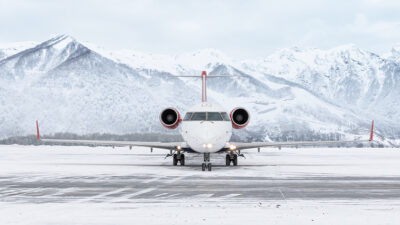Aviation Needs More Poets Right Now

Let me begin by saying I have absolutely zero empirical evidence that anything that follows in this article is grounded in reality. But I feel it to be true.
This statement alone is likely to get the majority of aviation readers to question the value of what I am about to say. I know this because aviation is an “evidence-based” science that worships (appropriately) Bernoulli’s Law, and charts on flight envelopes and stall speeds. We calculate critical field lengths, coefficients of friction and other mathematical inputs to obtain various takeoff and landing data. We’re not really a touchy-feely bunch.
Based on 40 years of experience, I can tell you that aviation professionals share a few common traits, and if I go out a little further on the limb, I can estimate when these traits manifest themselves, and when they wick out.
Most of us began as dreamers and poets, all wanting to “slip the surly bonds of earth… dance the skies on laughter silvered wings… and reach out to touch the face of God.” Most know these words came from John Gillespie Magee Jr., who was a World War II Royal Canadian Air Force fighter pilot and poet. Most don’t know that he was killed in a mid-air collision over England in 1941.
When the Dancing Dies
Somewhere along the way the dancing stopped and the mundane began. We may not have recognized when it happened, but it changed the way we viewed both our vocation and ourselves. We are less for it.
To steal a few words from a like-minded colleague, the world renowned Rod Machado (Rod Machado’s Aviation Learning Center), “Ernest Gann was a poet. His classic, Fate is the Hunter has all the trappings of a graduate course in human behavior.” Here’s one of Rod’s favorite excerpts:
Like the depths of the sea, the atmosphere allows us minor degrees of penetration and easily reveals its basic structure. But there are certain secrets both elements hold in reserve, and it is not too farfetched to suppose that only the dead have ever truly discovered them. Even so, these obscurities are frequently glimpsed by living intruders. It is then that a man may quickly discover his mental reliability and learn, to his chagrin, that when caught out of his natural boundaries, his mind may become as tricky as a gambler’s involved in a dice game operated by strangers.
Man, I could think for a week about this insight, reflecting on lost friends and close calls, the majesty of nature we claim to have conquered, and how I responded to its challenges in my time.
But there is more to my concern than a lack of good writers and aviation philosophers in the modern world. Much more, and especially relevant to right here and right now—in the midst of the COVID-19 quagmire we find ourselves in.
The Need for Inspiration in Trying Times
These times are confusing, uncertain, and have led to what we now know—empirically, I might add—are the tragic consequences of not dealing with the emotional side of performance during these troubling times. A host of studies are discovering the depths of the challenge in dramatically increased suicide rates (up 20% in the U.S. military since the start of the pandemic), substance abuse, domestic violence events, divorces and depression. Aviation professionals are not immune. We are humans first, aviators second. The difference between us and everyone else is that we operate high-speed vehicles filled with flammable fluids with multiple lives at stake on every flight we make.
Impacts of our emotional well-being are certainly present in this high-risk environment, but likely unaccounted for by any Safety Management System audit, analysis or electronic data-pull from our aircraft’s digital system. But these risks are there nonetheless. I can feel it.
We need more poetry right now to inspire us through these difficult times. We need to remember—or be reminded—that what we do is miraculous and hazardous. We need to also remember that we are human, and no amount of “mental compartmentalization” is adequate under the current conditions and emotional strain to protect us from the mental health challenges every single one of us is facing.
No answers here, no data-based solutions, just observations. Take care of yourself. Take care of each other.

Convergent Performance is uniquely dedicated to reducing human error in high risk environments.
http://www.convergentperformance.com/
© 2025 Convergent Performance. All Rights Reserved.
Next ArticleRelated Posts

Mitigating Risk – Amidst the Chaos
There have been more high-profile aviation accidents in the last few months than in the last few decades. As we mourn those we have lost and aim not to make assumptions before final reports are completed, we must focus, personally and professionally, on assessing the risk of something similar happening within our aviation enterprises.

Let’s Get Personal (About Risk)
Aviation loves to talk about risk management. Insurance companies, manufacturers, and organizations all fully embrace the concept and know that to make it work on the line, we must get people at all levels and from all functional areas to embrace it. Tools such as the Flight Risk Assessment Tool (FRAT) are noble attempts, but at the core of it all lies the simple fact that people, as individuals, view risk differently.

